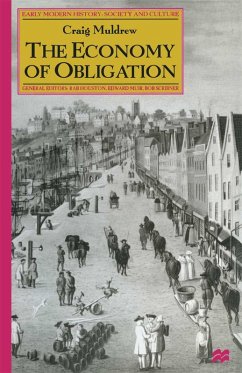
The Gentleman's House in the British Atlantic World 1680-1780 (eBook, PDF)
Versandkostenfrei!
Sofort per Download lieferbar
80,95 €
inkl. MwSt.
Weitere Ausgaben:

PAYBACK Punkte
40 °P sammeln!
The Gentleman's House analyses the architecture, decoration, and furnishings of small classical houses in the eighteenth century. By examining nearly two hundred houses it offers a new interpretation of social mobility in the British Atlantic World characterized by incremental social change.
Dieser Download kann aus rechtlichen Gründen nur mit Rechnungsadresse in A, B, BG, CY, CZ, D, DK, EW, E, FIN, F, GR, HR, H, IRL, I, LT, L, LR, M, NL, PL, P, R, S, SLO, SK ausgeliefert werden.












